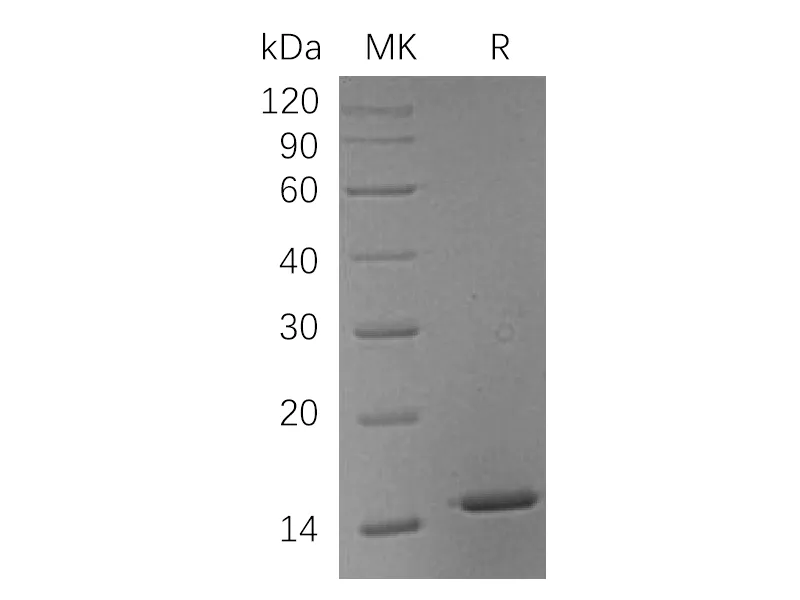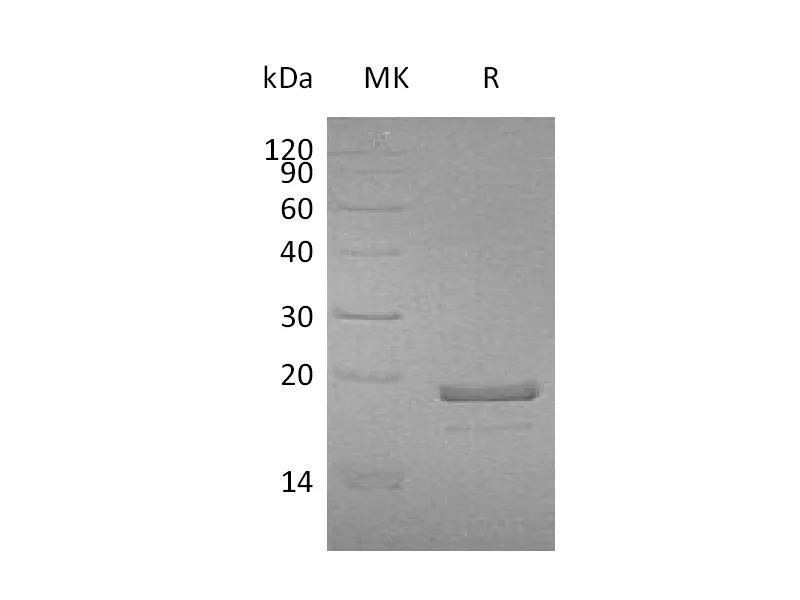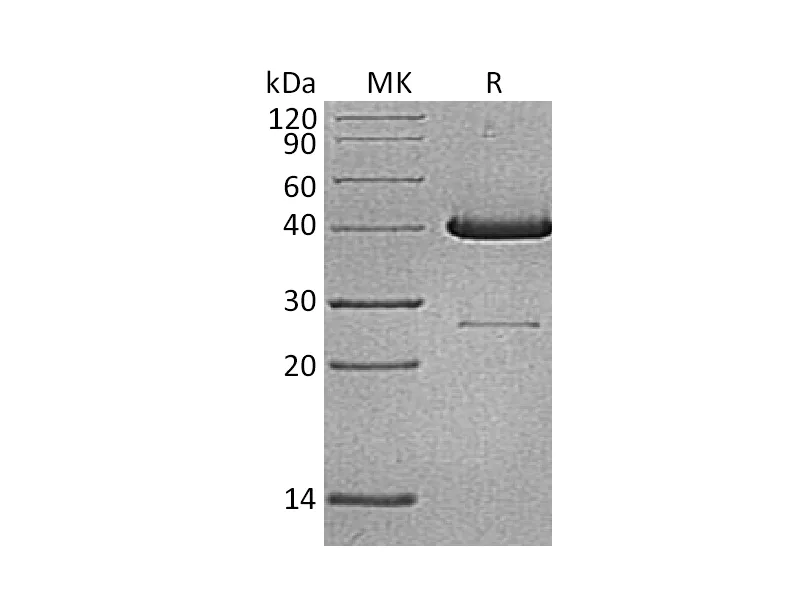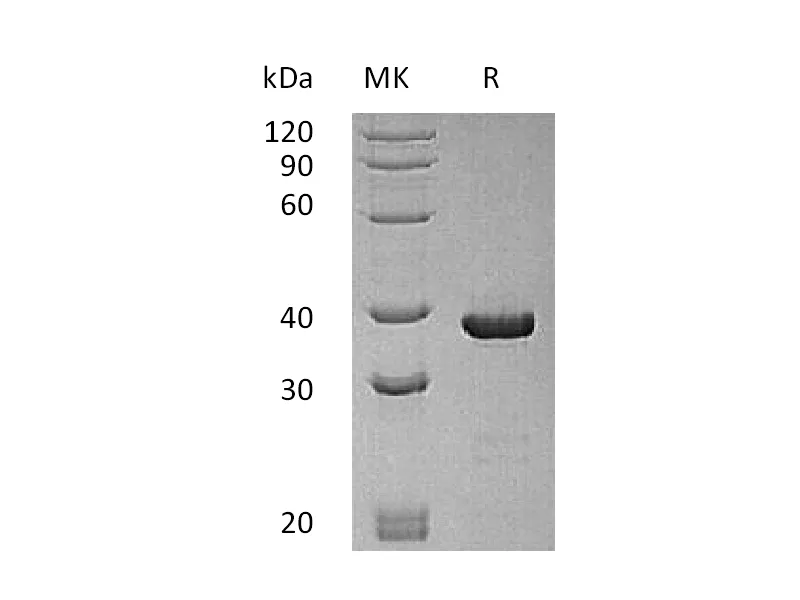| 产品名称 |
Recombinant Human Tie-2 (C-6His) |
| 英文名称 |
Tie-2/CD202b/TEK/VMCM |
| 纯度 |
Greater than 95% as determined by reducing SDS-PAGE |
| 内毒素 |
<1 EU/µg as determined by LAL test. |
| 蛋白构建 |
Recombinant Human Tie-2 is produced by our Mammalian expression system and the target gene encoding Ala23-Lys745 is expressed with a 6His tag at the C-terminus. |
| Accession |
NP_000450.2 |
| 表达宿主 |
Human Cells |
| 种属 |
Human |
| 预测分子量 |
81.4 KDa |
| 制剂 |
Lyophilized from a 0.2 μm filtered solution of PBS, pH 7.4. |
| 运输方式 |
The product is shipped at ambient temperature.Upon receipt, store it immediately at the temperature listed below. |
| 稳定性&储存 |
Store at ≤-70°C, stable for 6 months after receipt.Store at ≤-70°C, stable for 3 months under sterile conditions after opening. Please minimize freeze-thaw cycles. |
| 复溶 |
Always centrifuge tubes before opening.Do not mix by vortex or pipetting.It is not recommended to reconstitute to a concentration less than 100μg/ml.Dissolve the lyophilized protein in distilled water.Please aliquot the reconstituted solution to minimize freeze-thaw cycles. |
| 分子别名 |
| angiopoietin-1 receptor; CD202b antigen; CD202b; EC 2.7.10; EC 2.7.10.1; hTIE2; p140 TEK; soluble TIE2 variant 1; soluble TIE2 variant 2; TEK tyrosine kinase, endothelial; TEK; Tie2; Tie-2; VMCM; VMCM1 |
| 背景介绍 |
| Tie-1/Tie (tyrosine kinase with Ig and EGF homology domains 1) and Tie-2/Tek comprise a receptor tyrosine kinase (RTK) subfamily with unique structural characteristics: two immunoglobulin-like domains flanking three epidermal growth factor (EGF)-like domains and followed by three fibronectin type III-like repeats in the extracellular region and a split tyrosine kinase domain in the cytoplasmic region. These receptors are expressed primarily on endothelial and hematopoietic progenitor cells and play critical roles in angiogenesis, vasculogenesis and hematopoiesis. Human Tie-2 cDNA encodes a 1124 amino acid (aa) residue precursor protein with an 18 residue putative signal peptide, a 727 residue extracellular domain and a 354 residue cytoplasmic domain. Two ligands, angiopoietin-1 (Ang-1) and angiopoietin-2 (Ang-2), which bind Tie-2 with high-affinity have been identified. Ang-2 has been reported to act as an antagonist for Ang-1. Mice engineered to overexpress Ang-2 or to lack Ang-1 or Tie-2 display similar angiogenesis defects. |
注意事项
本司产品仅用于科研,不用于临床诊断和治疗




